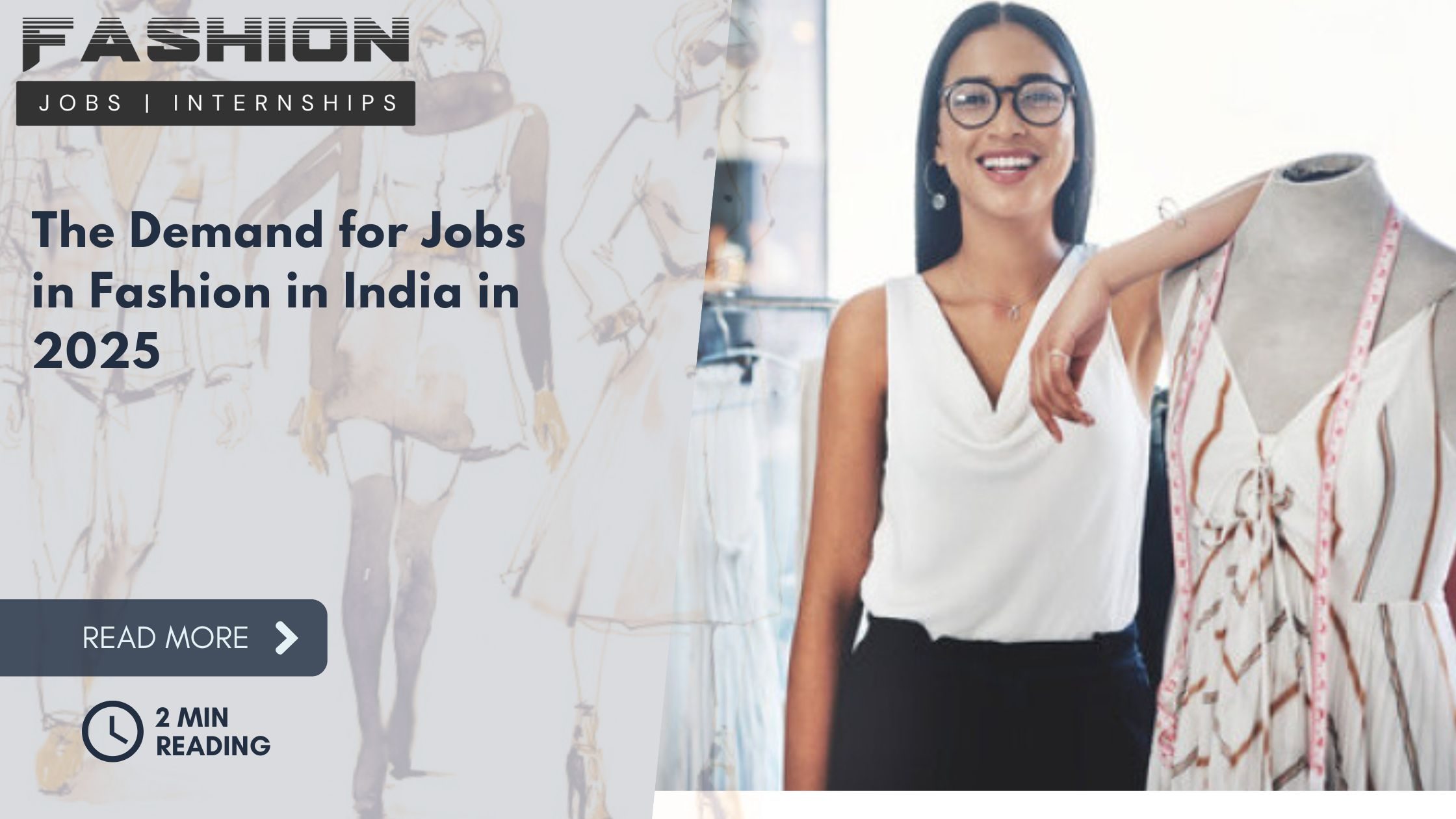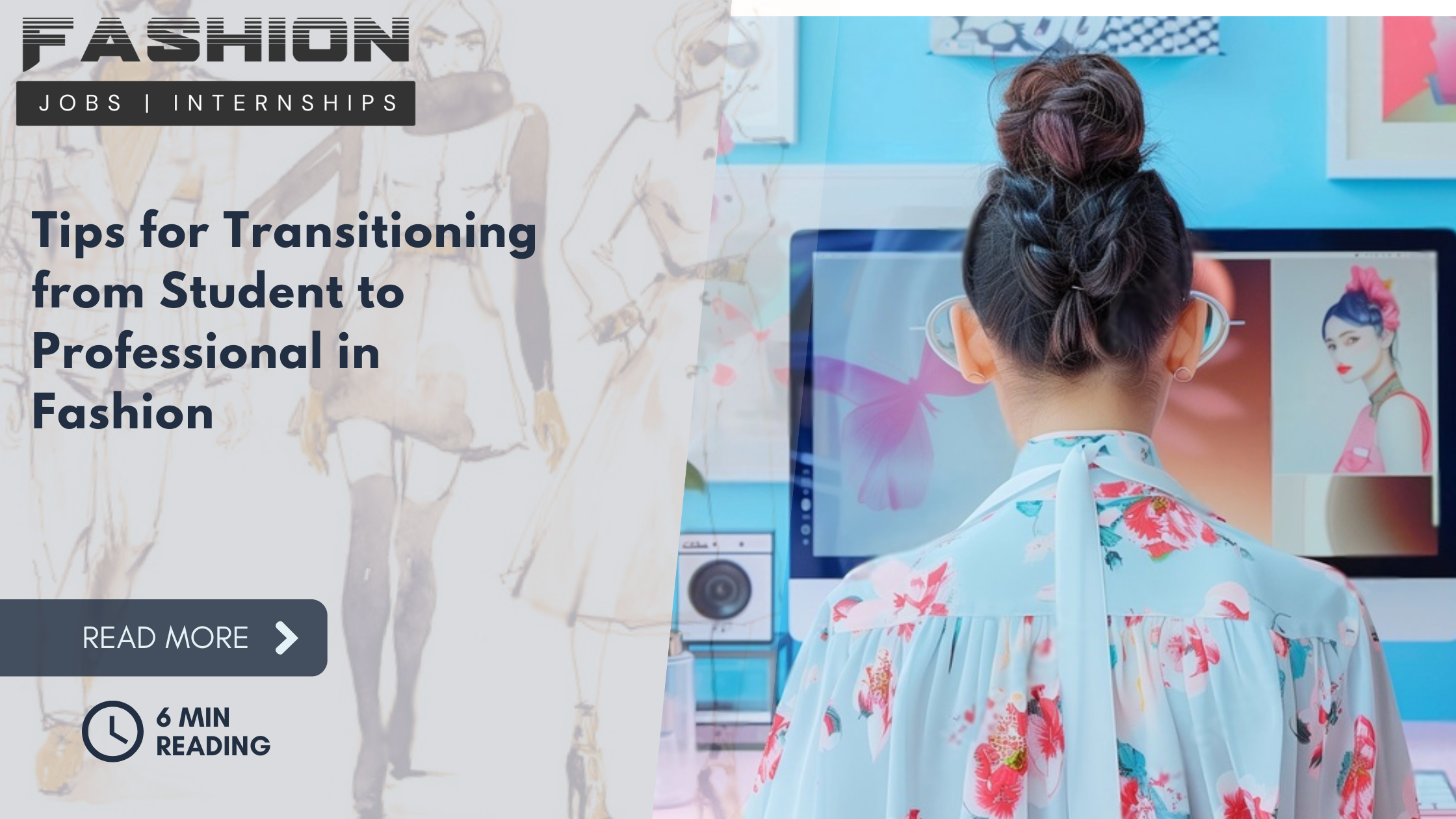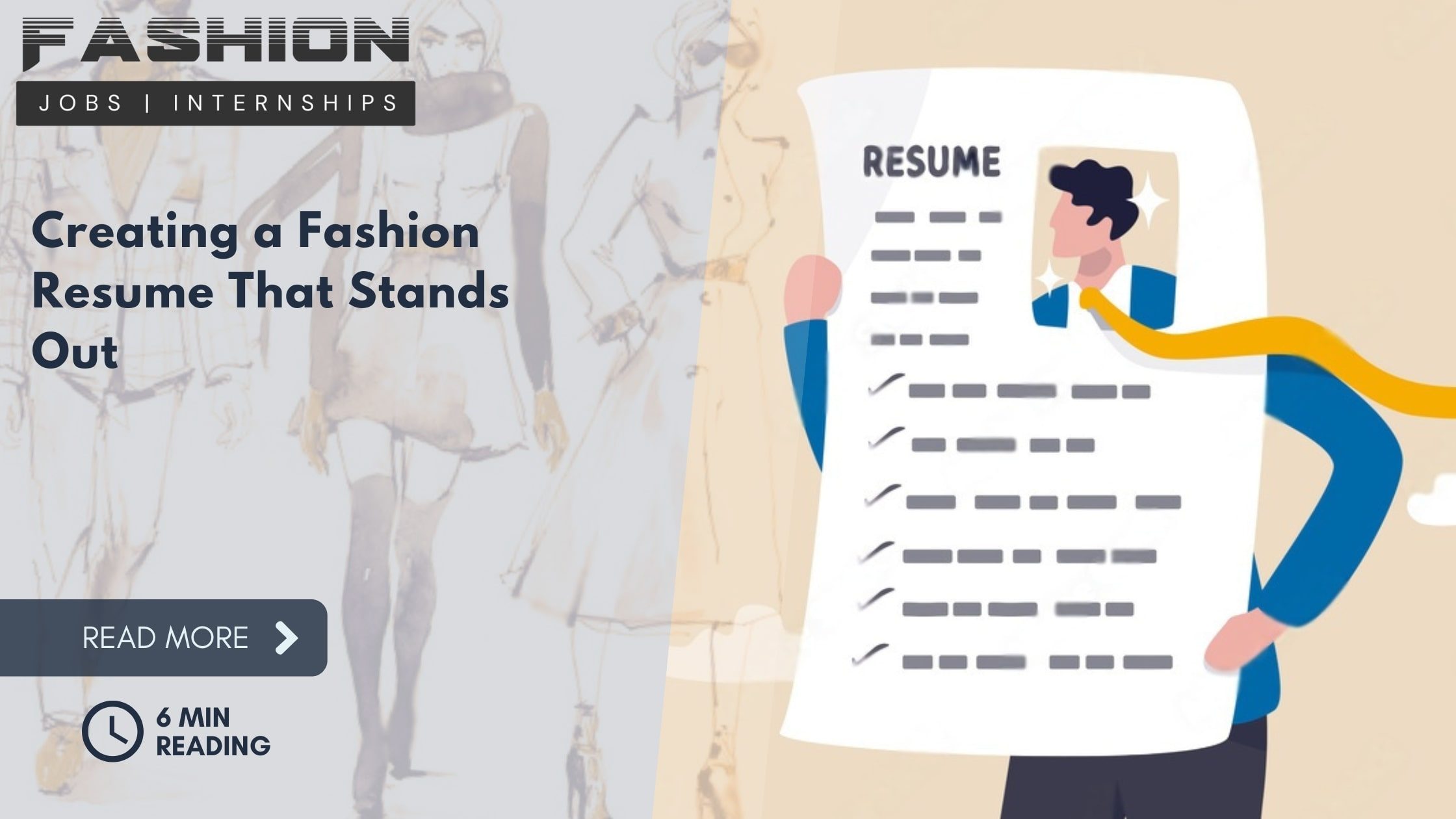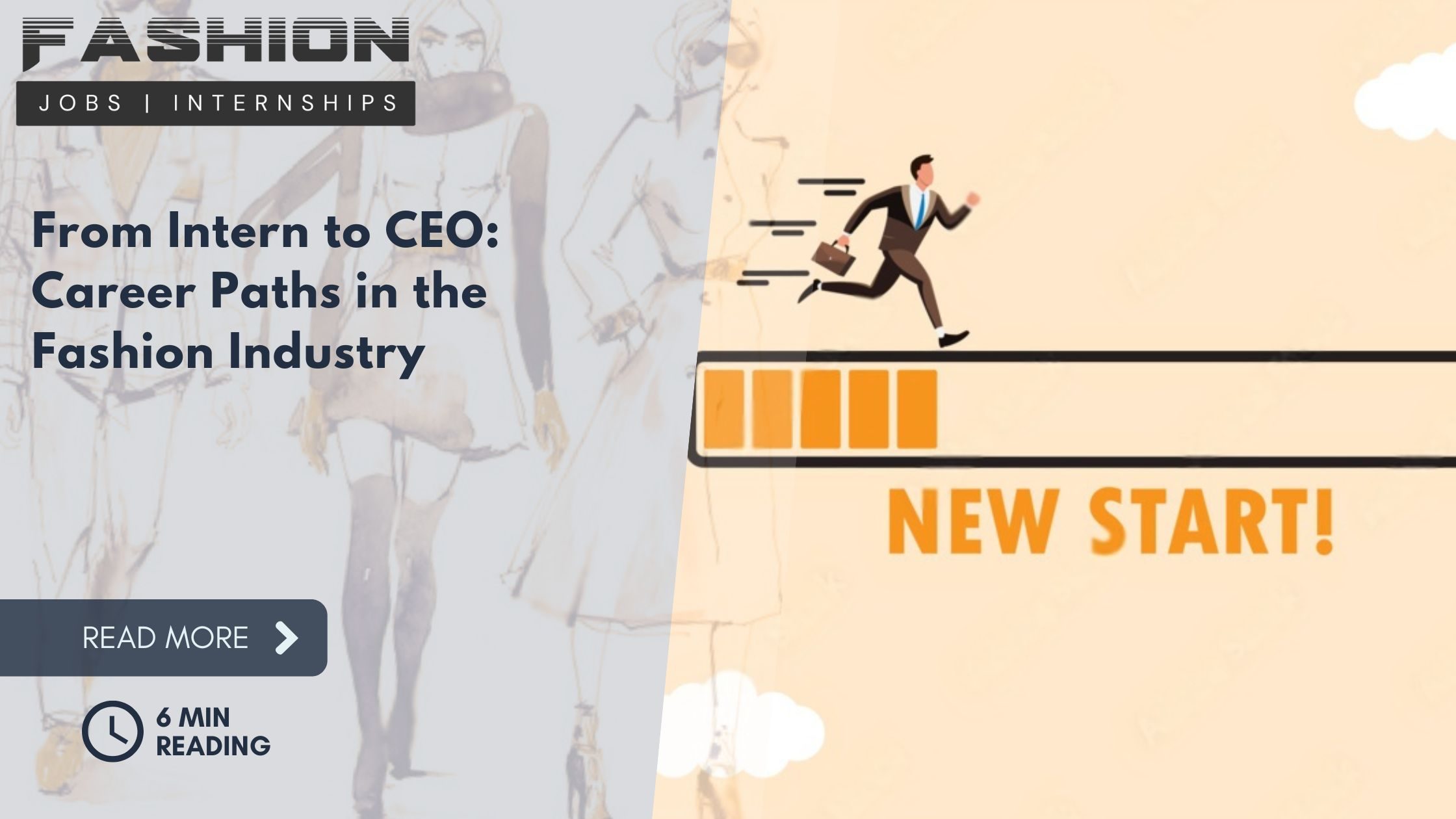We've all been there – staring down the barrel of a fashion industry interview, wondering how to spin our lack of experience into a genius design concept or fabric sourcing strategy. But acing these kinds of interviews is all about being prepared. From "can you tell us about your career goals?" to "how would you streamline a production process?", the key to success lies in showcasing your knowledge of the industry basics, design and creativity skills, and technical know-how. And trust us, there are more where those came from – so, let's get started on those tricky Q&A's.
Fashion Industry Basics
Breaking into the fashion industry isn't for the faint of heart – we're talking cutthroat competition, sky-high expectations, and a whole lot of espresso to keep up.
But, if you're still here, that means you're ready to take on the challenge. When it comes to acing that fashion interview, knowing the basics is key.
With a platform like Jobs for Fashion, connecting with top fashion brands and companies has never been easier, and having a solid grasp of fashion history can give you an edge in the competitive job market.
First off, you should have a solid grasp of fashion history.
We're not talking about memorizing every single designer and their collections, but you should know the major movements – think Art Deco, Minimalism, and Grunge.
Not only will this show that you're well-versed, but it'll also give you a deeper understanding of why certain trends are the way they are.
And trust us, it's not just about aesthetics – fashion is a reflection of society, after all.
But fashion isn't just about looking good; it's also about doing good.
Fashion ethics is a hot topic these days, and for good reason.
With fast fashion dominating the market, it's more important than ever that we're aware of the impact our choices have on the planet and its people.
So, be prepared to chat about sustainability, fair labor practices, and how your personal values align with the company's mission.
It's not enough to just care about fashion – you need to care about the world, too.
Career Goals and Aspirations
When it comes to nailing that fashion interview, our career goals and aspirations are put under the microscope.
It's time to get real about where we want to go in our careers and how we plan to get there. We've all heard the phrase "career milestones," but what does that even mean? Simply put, it's a fancy way of saying we've got a plan.
Having a strong online presence, such as a professional portfolio build and showcase work portfolio, can also help us stand out and demonstrate our skills and experiences to potential employers.
So, how do we convey our career goals and aspirations to a potential employer?
We start by being honest with ourselves. What do we want to achieve in the next 5-10 years? Do we want to be a creative director, a fashion editor, or a stylist to the stars?
We need to have a clear idea of our professional trajectory and be able to articulate it in a way that's concise and compelling.
When answering questions about our career goals, we should focus on the skills and experiences we need to get to where we want to go.
For example, if we want to be a fashion editor, we might say something like, "I'm looking to gain more experience in editorial styling and build relationships with designers and brands."
It's not just about where we want to end up, but how we plan to get there.
Design and Creativity Skills
We're diving headfirst into the wild world of design and creativity skills – the lifeblood of the fashion industry. This is where the magic happens, folks. Where art meets commerce, and functionality meets fabulousness. So, buckle up and let's get ready to rumble.
When it comes to showcasing your design and creativity skills, the interviewer wants to know if you have the vision, the talent, and the technical know-how to create garments that are both beautiful and functional. They want to see if you can think outside the box, take risks, and push the boundaries of fashion.
Design principles and creative vision questions to expect:
| Design Principle | Creative Vision | Example Question |
|---|---|---|
| Balance and Proportion | How do you confirm balance and proportion in your designs? | Can you walk me through your process for creating a balanced composition? |
| Emphasis and Focus | How do you create emphasis and focus in your designs? | How do you draw the eye to a particular feature or detail in your garment? |
| Harmony and Unity | How do you attain harmony and unity in your designs? | Can you give an example of a time when you had to balance multiple patterns or textures in a single garment? |
| Contrast and Variety | How do you use contrast and variety in your designs? | How do you decide when to use contrasting elements, such as color or texture, in a design? |
When answering these questions, remember to keep it concise, clear, and specific. Use examples from your own work or experiences, and don't be afraid to show your passion and creativity.
Technical and Business Knowledge
Now that we've covered the fabulous world of design and creativity, it's time to get down to business – literally.
In the fashion industry, technical and business knowledge can make or break a brand. Employers want to know that you're not just a creative genius, but also a savvy business person who can navigate the complexities of supply chain management and fabric sourcing strategies.
With over 3,178 job openings in fashion designing in India, it's crucial to stand out with a strong understanding of technical and business knowledge. You can explore job openings across all fashion fields to see the types of roles that require these skills.
So, when it comes to technical and business knowledge, employers are looking for specific skills and expertise.
Three key areas to focus on are:
- Supply chain management: Can you explain the different stages of the supply chain, from production to distribution? How would you streamline the process to reduce costs and improve efficiency?
- Fabric sourcing strategies: What're the key factors to take into account when sourcing fabrics, such as sustainability, quality, and cost? How would you verify that your fabric sourcing strategies align with the brand's values and goals?
- Data analysis and interpretation: Can you collect and analyze data on sales, production, and inventory? How would you utilize this data to inform business decisions and drive growth?
When answering technical and business knowledge questions, be specific and provide examples from your experience. Show that you've done your research and are familiar with industry trends and best practices.
And remember, it's not just about showing off your knowledge – it's about demonstrating how you can apply it to drive business results.
Teamwork and Communication
A fashion brand is only as good as its team, and that's a fact we can all get behind.
In the fashion industry, teamwork and communication are essential for creating cohesive collections, meeting deadlines, and making those runway shows happen.
Employers want to know you're a team player who can work harmoniously with designers, stylists, photographers, and other creatives.
By leveraging job search features, you can find opportunities that align with your strengths and interests, and showcase your collaborative skills to potential employers.
With a strong portfolio and career development resources, you'll be well on your way to becoming a valuable team member.
When asked about your experience working in a team, be honest about your strengths and weaknesses.
Highlight your ability to listen actively, provide constructive feedback, and adapt to different working styles.
Mention specific instances where you effectively collaborated with colleagues to achieve a common goal.
A collaborative mindset is key in the fashion industry, so show that you're willing to roll up your sleeves and get the job done.
Effective feedback is also pivotal in a team environment.
Be prepared to give examples of times when you gave or received feedback that improved the outcome of a project.
Show that you're open to constructive criticism and can use it to grow and improve your skills.
Problem Solving and Adaptability
We've all been there – staring at a design disaster, wondering how a trend that was hot yesterday is now a fashion don't, and stressing about meeting impossible deadlines.
As fashion professionals, we need to think on our feet and come up with creative solutions to these problems – and that's exactly what your interviewer wants to know you can do.
With over 3,178 job openings in fashion designing in India fashion job opportunities and the industry constantly evolving, being adaptable is key to survival.
Overcoming Design Challenges
Design challenges – the ultimate nemesis of any fashion designer worth their salt.
We've all been there, staring blankly at a sketchpad, our minds racing with innovative ideas that seem impossible to bring to life. It's in these moments that we're forced to think outside the box, to find creative workarounds to the design limitations that are holding us back.
Having access to exclusive fashion job listings from top brands and designers via our job search features can also provide valuable inspiration and insights to overcome design challenges. Additionally, building a strong portfolio and receiving real-time job alerts can help designers stay motivated and focused on their goals.
So, how do we overcome these challenges?
- Take a step back: Sometimes, the best thing to do is to walk away from a design and come back to it later with fresh eyes. This can help us approach the problem from a new angle and find a solution that we might've otherwise overlooked.
- Experiment and prototype: Don't be afraid to try new things and test out different ideas. This can help us identify potential problems and find creative solutions to them.
- Seek inspiration elsewhere: Look to other designers, artists, or industries for inspiration. Sometimes, the solution to a design challenge can be found in an unexpected place.
Adapting to Trends
Fashion trends come and go, but one thing remains constant: our ability to either sink or swim in the ever-changing tides of style.
As fashion enthusiasts, we're aware that staying ahead of the curve is key to success. When it comes to adapting to trends, we've got to be nimble and quick on our feet.
With the help of career resources and insights from websites like Job Search Features, we can stay updated on the latest fashion trends and job opportunities.
The interviewer might ask, "How do you stay on top of trend forecasting?" Our response should highlight our ability to stay informed through various channels, such as attending fashion weeks, following industry leaders, and scouring social media for the latest styles.
We can also mention our understanding of seasonless fashion, which is all about embracing timeless pieces that transcend trends.
When talking about trend forecasting, we should emphasize our analytical skills, citing our ability to identify patterns and predict future trends.
We can also mention our creative vision, highlighting our ability to think outside the box and come up with innovative designs that push the boundaries of fashion.
Managing Time Constraints
Well, we've got a few tricks up our sleeves.
In today's fast-paced fashion industry, where access to exclusive job listings and connections with leading brands are key, effective time management is vital for success.
- Time-blocking: schedule your tasks in fixed time slots, eliminating distractions during that time.
- Task segmentation: break down large tasks into smaller, manageable chunks, making them less overwhelming.
- Eisenhower Matrix: categorize tasks based on their urgency and importance, focusing on the most critical ones first.
Long Term Career Prospects
We're not just looking for a job, we're looking for a career – and that means we want to know our fashion company has a plan for our future.
Talking about growth and advancement opportunities isn't just about stroking our egos, it's about showing us a clear path to success.
As a fashion professional, we want to be empowered to pursue our dreams and take the next step towards a successful and fulfilling career in fashion exclusive job listings.
Growth and Advancement Opportunities
Our career trajectory in the fashion industry can be a wild ride, full of twists and turns that either leave us breathless or begging for a map.
But let's get real – we're not just in this for the thrill of it. We want to know that our hard work will pay off, and that we'll have opportunities to grow and advance in our careers.
With exclusive fashion job listings from top brands and designers exclusive fashion job listings, we can find the right fit for our skills and goals. Having a strong online presence, such as a customizable portfolio, can also help us stand out and attract potential employers.
When it comes to growth and advancement opportunities, here are a few things we're looking for:
- Career milestones: We want to know that there's a clear path for advancement, with specific milestones and achievements that will take us to the next level.
- Professional development: We're looking for opportunities to learn new skills, take on new challenges, and expand our knowledge and expertise.
- Autonomy and ownership: We want to be able to take ownership of our work, and have the autonomy to make decisions and drive results.
Career Development Paths
Fast-forward to our dream scenario: we've landed that coveted fashion job, proven our skills, and are now ready to take the reins and steer our careers in a direction that matters. As we look to the future, we need to think about our long-term career prospects – where do we want to be in five years? In the fashion industry, career development paths are often non-linear, but having a clear vision can help guide our decisions.
| Career Milestones | Professional Networks |
|---|---|
| Assistant Designer | Attend industry events and join design groups |
| Senior Designer | Collaborate with influencers and bloggers |
| Creative Director | Mentor emerging designers and participate in fashion weeks |
| Brand Ambassador | Leverage social media to build personal brand |
| Entrepreneur | Connect with investors and industry leaders |
Frequently Asked Questions
What Do You Know About Our Fashion Brand?
We've done our research on you, and let's just say we're impressed.
Your fashion brand is more than just a pretty face – you've got values that align with ours, like sustainability and inclusivity.
We've also dug into your company history and love how you've evolved from a small startup to a game-changing label.
It's clear you're not just about making clothes, but about making a statement.
Can You Tell Me About Your Personal Style?
Our style – it's an ever-changing beast, and we love it that way.
We're not about following the crowd; we're more about interpreting trends in our own unique way.
We see fashion as an evolution, not a revolution – it's about taking what's hot and making it our own.
Think of us as the rebels of the fashion world, always on the lookout for that perfect blend of style and self-expression.
Why Do You Want to Work in Fashion?
Why do we want to work in fashion, you ask?
Honestly, it's because we're hooked on the high of creative expression.
We live for the rush of bringing a design to life, of witnessing fashion passion ignite on the runway.
It's not just about clothes – it's about liberation, self-expression, and art.
We're talking revolution, not just a wardrobe update.
And honestly, where else can we get away with wearing our hearts on our sleeves?
How Do You Stay Current With Fashion Trends?
Staying current with fashion trends – the ultimate test of our sanity, right?
We're talking runway analysis, trend forecasting, the whole shebang.
We devour fashion mags, scroll through style blogs, and hit up the biggest fashion weeks (hello, NYFW).
We're also all about street style – what's hot on the sidewalks is just as important as what's strutting down the catwalk.
It's a wild ride, but someone's gotta stay on top of it.
How Would You Describe Your Fashion Aesthetic?
Let's talk fashion aesthetic – the ultimate question of style soulmates.
For us, it's all about embracing the eccentricities of our fashion icons, from Bowie's bold to Frida's fierce.
Our personal inspirations are a motley crew of rebels and free thinkers.
We're all about liberation through fashion, where self-expression is the ultimate superpower.
We're not just dressing for the occasion; we're dressing for our unapologetic, unconventional selves.
Conclusion
We made it to the end – you're one step closer to slaying that fashion interview. Remember, it's not just about knowing your stuff, it's about showing your passion, creativity, and willingness to learn. So, go ahead, dazzle them with your design skills, charm them with your teamwork tales, and convince them you're the perfect fit for their fashion brand. May the odds be ever in your favor.




